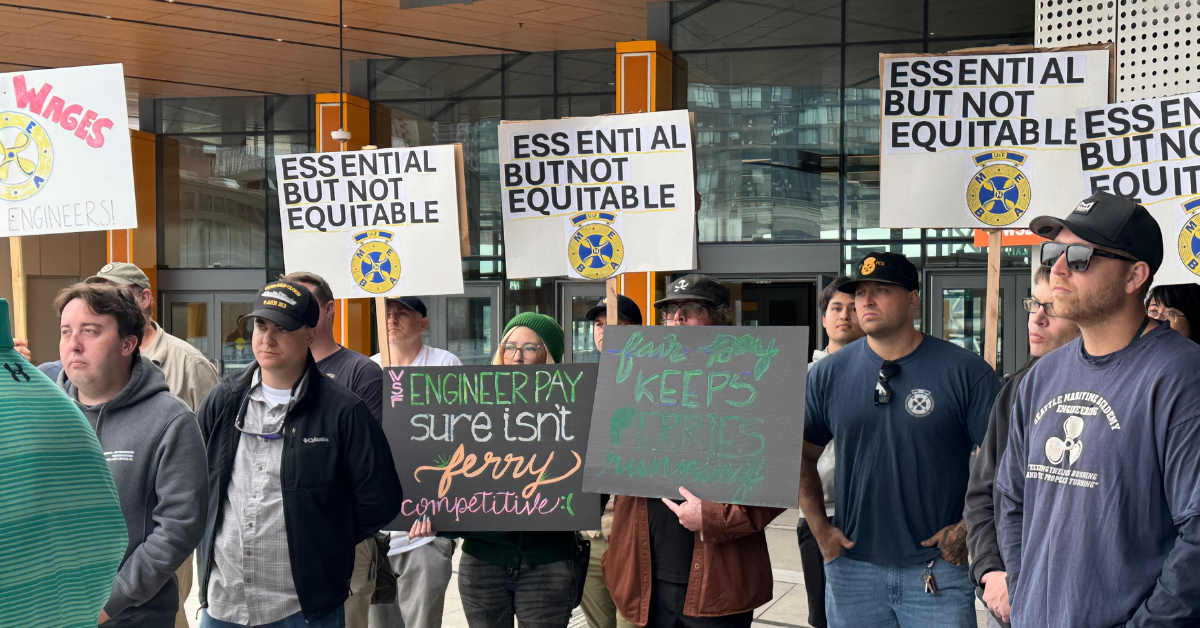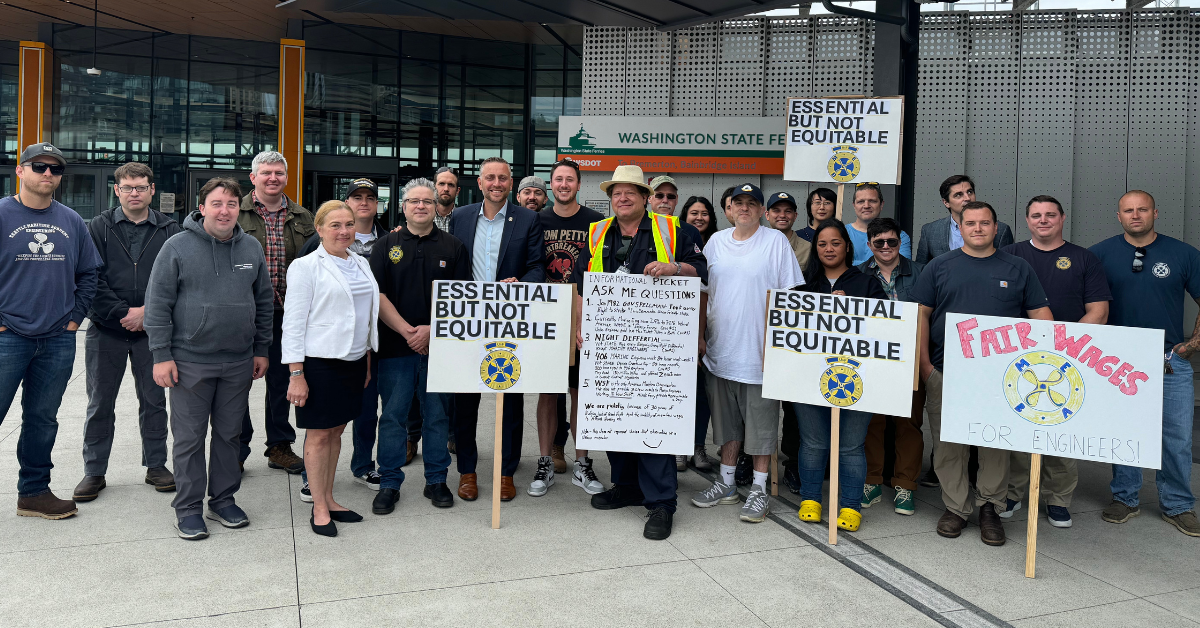LOCAL
Ferries workers fight for fair pay
Workers sound the alarm as low pay and poor management worsen Washington’s ferry system crisis
SEATTLE, WA (August 15, 2024) — Engine room crew members at Washington State Ferries are calling on the State to provide competitive pay, critically needed to both retain and recruit engine room crew and to restore safe and reliable ferry service.
Washington State Ferries (WSF) is the largest passenger ferry system in America, a critical link in the Washington state transportation system. It depends on 400 marine engineers and oilers to operate, repair and maintain ferry vessels. Ferry ridership is returning to pre-pandemic levels, but service remains spotty. State investments in the workers who make the ferry service run are lacking — and unreasonable requests from management are worsening the situation.

Ferries workers at a M.E.B.A press conference in early August. Photo: M.E.B.A
“Some engine room crew members are being asked to work 100 hours of overtime per month,” said Eric Winge, WSF representative for the Marine Engineers’ Beneficial Association (M.E.B.A), the union representing the workers. “It’s unreasonable, causes burnout and threatens safe operations.”
Without investments in workers’ pay, the ferry service is unreliable even as ridership grows; in 2023, there were more than 3,500 canceled sailings, and service disruptions continue.
Per Winge: “The state’s refusal to address pay disparity is pushing experienced crew to take early retirement or leave for better paying private sector jobs. By closing the growing gap between engine room crew pay and the cost of living here in the Puget Sound region, the state can address these serious workforce issues and build the bench of engineers we’ll need to operate, maintain and repair the new ferries coming online in the years ahead.”
Marine engineers are essential engine room crew. When there are not enough crew, boats tie up and do not run, causing delays and canceled sailings that have a ripple effect on the people, businesses and communities that depend on them.
“We need 21 boats, but we can’t even meet crew requirements for the 15 boats in service right now,” said Winge. “Ferry cancellations are wreaking havoc on ferry dependent communities and businesses across the Puget Sound. By refusing to address low pay, the state is assuring our ferry system will slip deeper into failure. Half of our WSF engine room crew is up for retirement in 2027. Many are poised to quit right now for jobs where the pay is in line with their certification, skills and experience.”

Ferries workers and supporters at an August press conference. Photo: M.E.B.A
Ferry engine room crew, backed by M.E.B.A, have launched a public petition asking Washington Governor Jay Inslee to direct the state to provide competitive pay to retain and recruit engine room crew, key to restoring safe and reliable ferry service.
TAKE A STAND — sign the petition urging Governor Inslee to take action to provide competitive pay for ferry engine room crew and restore reliable ferry service.
As ferry service disruptions continue through the summer months, engine room workers continue to sound the alarm on root causes that may not be immediately visible to the general public. “We can’t keep going like this – working 100 hours of overtime a month, and having zero time with our families,” said Phillip Anderson, staff chief engineer on M/V Tillikum. “It’s unsustainable and frankly, it threatens the safety of vessel operations. The public is angry and they have a right to be – but they may not understand that dependable ferry service depends on having highly trained marine engineers on every shift. We are 40-50 crew members short and we’ll never boost our numbers without competitive pay for this industry.”
With no agreement reached in bargaining to address low pay and resulting crew shortages, the workers and state are headed to arbitration on August 22.
Learn more at mebaunion.org





